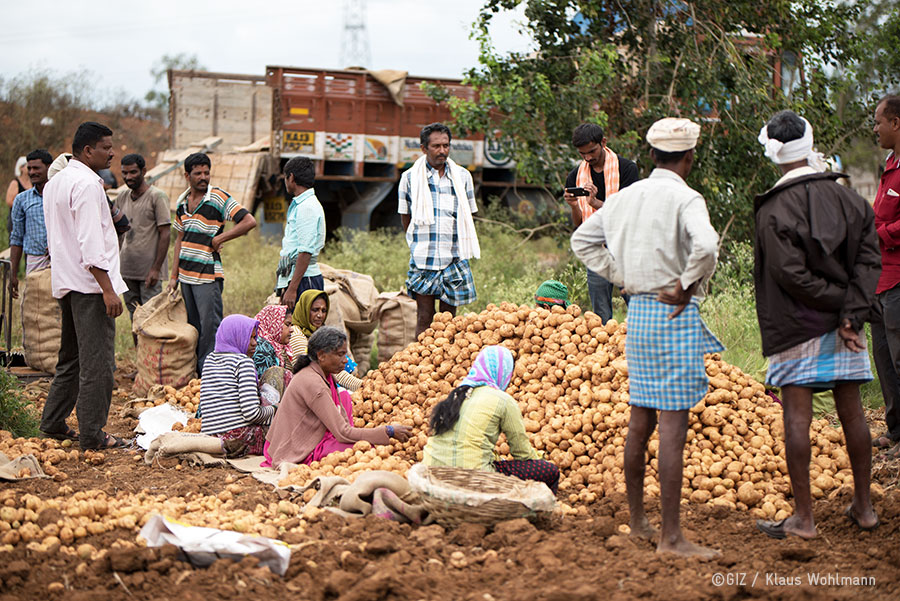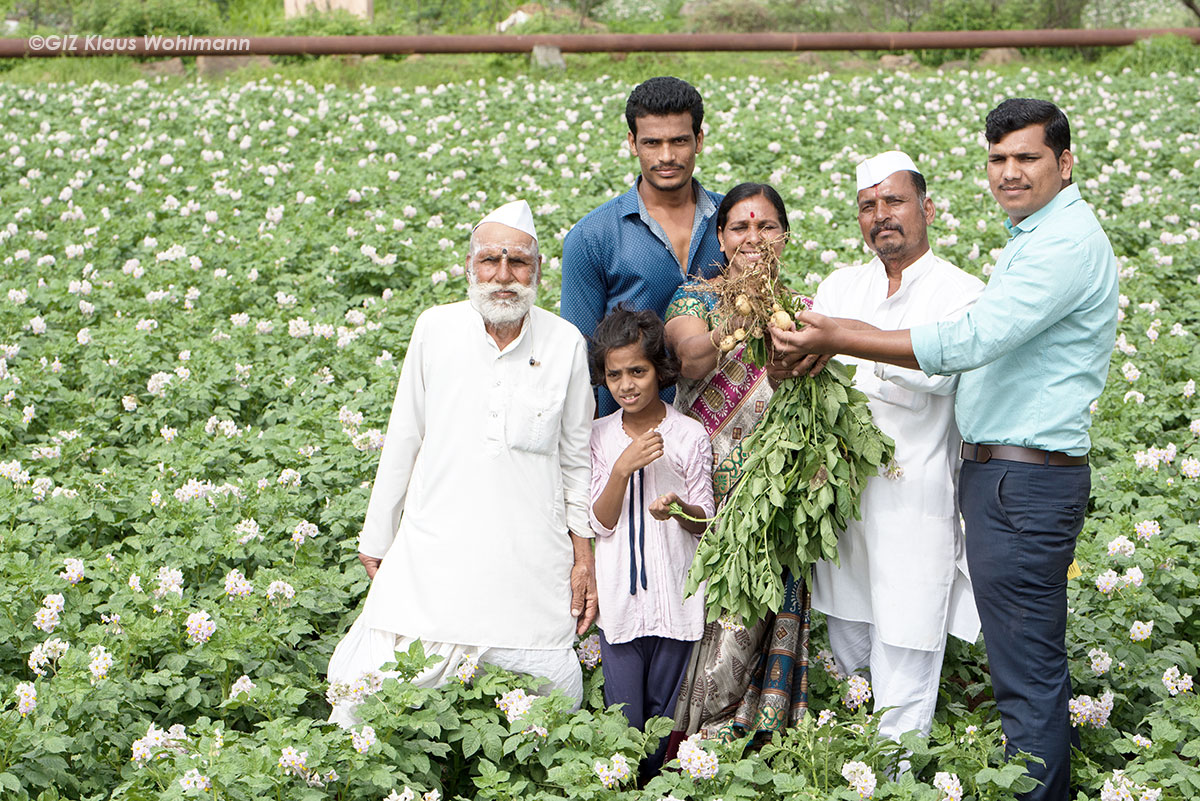Good seedlings = a rich harvest

Potato farmers learn how to maximise their incomes on the test field – and to think economically.
Sanjay Chowdary and his wife Laxmi show us the potato plant they have just pulled from the ground; at least ten tubers are hanging from it, three times more than the usual number – and the Chowdarys’ expectations are just as high. “We’re sure that we’ll have a rich harvest this year”, says the smallholder, who is testing a new variety of potato on the 800 m² test field this season. The 51-year-old is one of 20 farmers who belong to the newly-established farmers’ group in Wakalwadi. The village with its 200 families is located about 60 kilometres north of Pune in Maharashtra State, India.
A lot has changed since the Green Innovation Centre started its work here in April. First of all, test production was switched from potatoes for processing to potatoes for fresh consumption. Each group member received 250 kilogrammes of high-quality seed potatoes from the Green Innovation Centre. To increase product quality, the farmers also tried out new planting methods such as improved earthing of the potatoes. Sustainable plant protection also plays a major role, preventing plant diseases.
The farmers receive guidance from an innovation consultant of the Green Innovation Centre, who visits the group once a week. “He first walks around our fields checking everything thoroughly”, says Laxmi. “Then at the meeting afterwards, he gives us lots of useful advice about seeds and seedlings, cultivation methods… and the next steps we have to take”.
 Something else is also going to change in future: in the past, the Wakalwadi farmers always bought their seed potatoes from traders; but from now on, they’ll reserve part of their potato crop for the next season, giving them more planting area than they had in the previous season. Goraksh Shivaji Pavle, also a member of the Farmers’ Association, is convinced that the concept will work: “Now we’re saving a lot of money and we don’t depend as much on the traders”.
Something else is also going to change in future: in the past, the Wakalwadi farmers always bought their seed potatoes from traders; but from now on, they’ll reserve part of their potato crop for the next season, giving them more planting area than they had in the previous season. Goraksh Shivaji Pavle, also a member of the Farmers’ Association, is convinced that the concept will work: “Now we’re saving a lot of money and we don’t depend as much on the traders”.
The farmers’ group has meanwhile established a common fund to which members regularly contribute to finance investments for the group. “I’m sure that this project will change our lives. Not just for us 20 farmers, but for the whole village”, says Sanjay Chowdary.
Under “One World No Hunger” initiative, Germany’s Federal Ministry for Economic Cooperation and Development (BMZ) aims at addressing poverty and hunger by establishing food and agri focused Green Innovation Centres and work in 14 countries in Africa and India. Starting work in India 2015, the Centres support farming enterprises and businesses along potato and tomato value chains in 4 selected districts of the Indian states Maharashtra, Karnataka and Andhra Pradesh, and advise on suitable innovations (e.g. improvement of seed quality, technologies and machinery, ICT), trainings in Good Agricultural Practices (GAP) and support the setting up of farmers organisations. In this regard, the Centres’ project cooperates with the Indian Ministry of Agriculture, National Centre for Cold Chain Development (NCCD) private companies, research centres and civil society. For more detail, click here.
Jonathan Ziebula
Project Director,
Deutsche Gesellschaft für Internationale Zusammenarbeit (GIZ) GmbH
No. 38/43, 1st Floor, 10th A Main Road, 5th Cross
1st Block, Jayanagar, Bengaluru, India
M (Germany): +49 171-2724055
M (India): +91 7042 0456 25
L (India): +91 80 46664000 (Ext. 6022)
Email: jonathan.ziebula@giz.de

